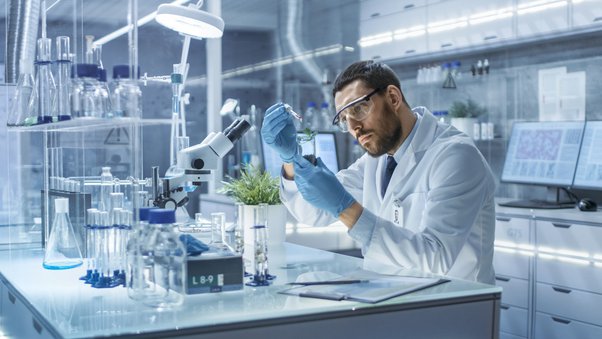Introduction
Biotechnology has become one of the most exciting and transformative fields of science. A Bachelor of Science (BSc) in Biotechnology equips students with the knowledge and skills to revolutionize industries, tackle global challenges, and pave the way for innovation. From genetic engineering to drug development, this program is designed for those passionate about using biology to improve lives.
What is a BSc in Biotechnology?
A BSc in Biotechnology combines biology, chemistry, and technology to explore living organisms and biological systems for practical applications. This interdisciplinary field plays a vital role in sectors like healthcare, agriculture, environmental management, and industrial processing.
Why Choose a BSc in Biotechnology?
- Diverse Career Opportunities
Graduates can explore careers in research labs, pharmaceutical companies, agricultural firms, and more. Biotechnology also opens doors to roles in bioinformatics, genetic counseling, and environmental science. - High Demand in Emerging Industries
With advancements in gene therapy, synthetic biology, and vaccine development, biotechnologists are in high demand worldwide. - Contributing to Global Solutions
Biotechnology addresses global challenges like food security, climate change, and pandemic preparedness, making it a rewarding field.
Core Subjects in BSc Biotechnology
The curriculum is a mix of theoretical knowledge and practical skills. Key subjects include:
- Genetics and Molecular Biology: Understanding DNA, RNA, and proteins.
- Microbiology: Study of microorganisms and their industrial applications.
- Biochemistry: Chemistry of living organisms and biomolecules.
- Bioprocess Engineering: Designing systems for large-scale biological production.
- Bioinformatics: Using computational tools to analyze biological data.
Skills Developed in BSc Biotechnology
- Analytical and critical thinking.
- Laboratory techniques, such as PCR and electrophoresis.
- Data interpretation and statistical analysis.
- Research methodologies and scientific writing.
- Ethical decision-making in biotechnology.
Career Pathways after BSc in Biotechnology
1. Healthcare and Pharmaceuticals
Roles: Clinical Research Associate, Biomedical Scientist, Quality Control Analyst.
2. Agriculture and Food Technology
Roles: Agricultural Scientist, Food Technologist, Bioprocess Technician.
3. Environment and Sustainability
Roles: Environmental Biotechnologist, Bioenergy Specialist.
4. Research and Development
Roles: Research Scientist, Bioinformatics Specialist.
5. Entrepreneurship
Start your own biotech firm or consultancy.
Future Trends in Biotechnology
- CRISPR Technology: Revolutionizing gene editing.
- Personalized Medicine: Customizing treatments for individual genetic profiles.
- Synthetic Biology: Designing new biological systems.
- Biodegradable Plastics: Addressing environmental concerns.
- AI in Biotechnology: Enhancing research efficiency and outcomes.
Advantages of Pursuing a BSc in Biotechnology
- Cutting-edge Curriculum: Stay updated with the latest technologies and techniques.
- Hands-on Training: Gain practical experience through labs and internships.
- Global Recognition: Biotechnology degrees are valued worldwide.
- High Salary Potential: Rewarding career prospects in growing industries.
Challenges in Biotechnology
- High cost of research and development.
- Ethical dilemmas in genetic modification.
- Rapidly changing technologies require continuous learning.
Conclusion
A BSc in Biotechnology is more than just a degree—it’s a gateway to transforming the future. By merging science and technology, this field empowers students to make meaningful contributions to society. If you’re passionate about science and innovation, this program is your stepping stone to an impactful career.
FAQs
Q1: What is the scope of a BSc in Biotechnology in India and abroad?
A BSc in Biotechnology offers vast opportunities both in India and globally. Industries like pharmaceuticals, agriculture, and environmental management actively seek skilled biotechnologists.
Q2: How does the BSc in Biotechnology differ from other BSc programs?
Unlike general BSc programs, biotechnology integrates biology with technology, focusing on practical applications in diverse industries.
Q3: What are the eligibility criteria for BSc in Biotechnology?
Typically, students must have completed 10+2 with science subjects, including biology, chemistry, and physics.
Q4: Can I pursue higher studies after a BSc in Biotechnology?
Yes, students can opt for MSc Biotechnology, MBA in Biotechnology, or other specializations for advanced learning and career growth.
Q5: Is a BSc in Biotechnology suitable for entrepreneurship?
Absolutely! Biotechnology offers a platform for starting innovative ventures, such as biotech startups or consultancy services.
Q6: How is BSc full form connected to a career in biotechnology?
BSc full form often reflects the academic foundation necessary for understanding scientific concepts. In biotechnology, this degree enables students to develop critical knowledge and practical skills, paving the way for careers in research, healthcare, and technology-driven industries.
Q7: What are the growth opportunities after pursuing a BSc in Biotechnology?
Graduates with a BSc in Biotechnology can explore roles in research, pharmaceuticals, and agriculture. The field also offers opportunities to specialize further with advanced degrees, allowing individuals to contribute to innovations in genetic engineering, biomedicine, and environmental sustainability.








Leave a Reply